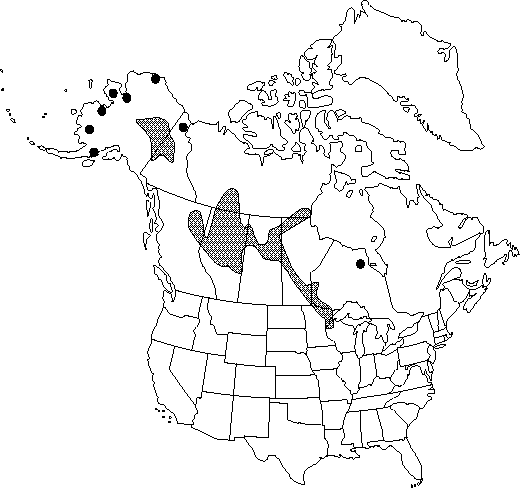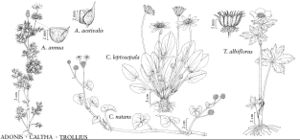Revision as of 15:29, 24 September 2021 by GeoffLevin (talk | contribs) (Added Nunavut to distribution; treatment was published before Nunavut split from N.W.T.)
Stems leafy, floating or creeping, rooting at nodes. Basal leaves: blade ovate-reniform or cordate, largest 1-2.5 × 1-5 cm, margins nearly entire. Inflorescences 2-6-flowered. Flowers 8-13 mm diam.; sepals white or pinkish, 4-7(-8) mm. Follicles 20-55, widely spreading, sessile, oblong; bodies 3.2-6.5 × 1-2.5 mm; style and stigma curved, 0.1-0.4 mm. Seeds broadly elliptic, 0.5-0.8 mm. 2n=16, 32.
Phenology: Flowering late spring–summer (Jun–Aug).
Habitat: Floating or on moist mud, ponds, lakes, slow-moving rivers and streams
Elevation: 25-1500 m
Distribution

Alta., B.C., Man., N.W.T., Nunavut, Ont., Sask., Yukon, Alaska, Minn., Wis., Eurasia.
Discussion
Unlike the other species of Caltha in North America, C. natans is relatively invariable morphologically and has not been divided into segregate taxa.
Selected References
None.
Lower Taxa
None.
